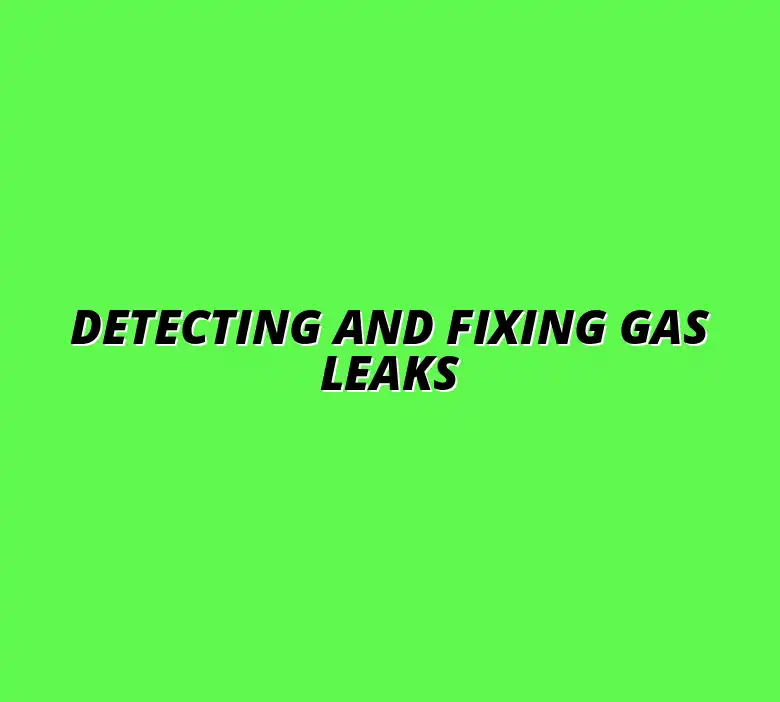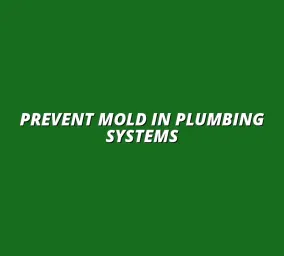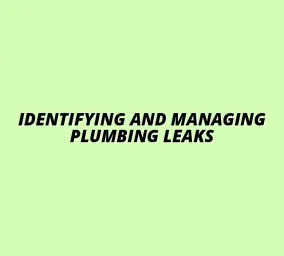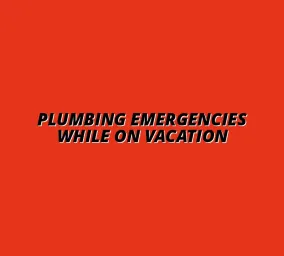Detecting and Fixing Gas Leaks
Understanding Gas Leaks in Plumbing Systems
Gas leaks in plumbing systems can be dangerous, and it’s crucial to understand what they are. A gas leak occurs when gas escapes from pipes or fittings, potentially leading to hazardous situations. Recognizing these leaks early on can save lives and prevent serious property damage.
In order to protect yourself and your home, it’s important to know the key aspects of gas leaks. Let’s dive into what defines a gas leak and where they commonly originate. Regular maintenance is key to preventing many issues, including gas leaks, so it's useful to know how to maintain your plumbing system easily.
What is a Gas Leak?
A gas leak is defined as an escape of gas from a plumbing system into the surrounding environment. This could happen in various forms, including severe ruptures or tiny fissures in the piping. While some leaks are minor, even small amounts of escaping gas can pose serious risks.
Understanding the context of gas leaks is essential for homeowners. In plumbing systems, these leaks typically involve natural gas or propane, both of which are highly flammable and can lead to dangerous situations if left unchecked. Knowing how regular inspections can prevent plumbing leaks is a great first step in preventing future issues.
Defining Gas Leaks in Plumbing Context
In plumbing, a gas leak can occur due to a variety of issues. These include:
- Corroded pipes: Over time, pipes can wear down, leading to leaks. Learn helpful tips on preventing pipe corrosion to extend the life of your pipes.
- Loose fittings: If connections between pipes are not secure, gas may escape.
- Damaged valves: Valves that control the flow of gas can become faulty.
The key takeaway is that any disruption in the integrity of the plumbing can result in a gas leak. Regular inspections and maintenance are vital for preventing these issues.
Common Sources of Gas Leaks
Gas leaks can originate from various sources in your plumbing system. Knowing these sources can help you remain vigilant. Common sources include:
- Appliances: Stoves, dryers, and heaters can develop leaks if not properly maintained.
- HVAC systems: Heating systems may have gas lines that leak over time.
- Outdoors: Gas lines running underground or outside your home can be prone to leaks due to weather or physical damage.
Being aware of these potential leak sources can help you take action quickly. Regular checks can prevent mishaps and ensure safety at home. For example, knowing how to detect water heater leaks easily can save you from bigger problems down the line.
Signs and Symptoms of a Gas Leak
Detecting a gas leak early is essential for safety. There are distinct signs and symptoms to look out for. Recognizing these can mean the difference between a minor issue and a major emergency!
Both physical symptoms and environmental indicators can signal a gas leak. Let’s explore these in more detail.
Physical Symptoms: Smells and Sounds
The most noticeable sign of a gas leak is the smell. Natural gas is often treated with a substance called mercaptan, which gives it a distinctive rotten egg odor. If you detect this smell, it’s crucial to act immediately.
You may also hear unusual sounds, such as:
- Hissing: This sound often indicates escaping gas.
- Whistling: A high-pitched sound can also signify a leak.
If you encounter these symptoms, do not ignore them. They are essential clues that something may be wrong. If you have a leaky faucet, knowing how to fix your leaky bathroom faucet can quickly resolve the issue.
Environmental Indicators of a Gas Leak
Besides smells and sounds, there are environmental changes that may indicate a gas leak. You should look for:
- Dead vegetation: If plants near gas lines are wilting or dying, it could be a sign of a leak.
- Dust or debris blowing: Unusual dust clouds may form if gas escapes underground.
- Air bubbles in water: If you notice bubbles in standing water, it could point to a gas leak in pipes.
Being aware of these indicators can help you stay safe and take action before a situation worsens. In case of a major emergency, you will want to know how to stop a faucet leak quickly.
The Importance of Detecting Gas Leaks Early
Detecting gas leaks early is vital for preventing health risks and property damage. Acting swiftly can save lives and keep your home safe. It is important to understand just how dangerous gas leaks can be.
Let's discuss the health risks and potential property damage associated with gas leaks. If you need professional assistance, a plumber in Billesley, Birmingham can help.
Health Risks Associated with Gas Leaks
Gas leaks can lead to serious health issues for you and your family. Exposure to natural gas may cause:
- Headaches: Low-level exposure can lead to persistent headaches.
- Nausea: Breathing in natural gas can make you feel sick.
- Dizziness: A higher concentration of gas may cause dizziness or disorientation.
In extreme cases, it can even result in unconsciousness or worse. If you suspect a gas leak, it's critical to act promptly!
Potential Property Damage from Gas Leaks
Beyond health risks, gas leaks can threaten your property. Some of the potential damages include:
- Fires: Gas is highly flammable, and any spark can ignite it.
- Explosions: Accumulated gas in enclosed spaces may lead to explosions.
- Structural damage: Even minor leaks can weaken structures over time.
Understanding these risks emphasizes why prompt detection and repairs are essential. Taking early action can help prevent devastating outcomes.
Steps to Fix a Gas Leak in Your Plumbing System
Immediate Actions to Take Upon Detection
The first thing you should do upon detecting a gas leak is to evacuate the area safely. Ensure that everyone, including pets, leaves the premises immediately to avoid any health risks. It’s crucial to stay calm and avoid using any electrical devices, such as light switches or phones, which can create sparks.
Once you are safely outside, the next step is to shut off the gas supply. Locate the main gas shut-off valve, which is typically found near your gas meter. Turning this valve clockwise can help stop the flow of gas, reducing the risks of an explosion or serious health issues.
Assessing the Severity of the Leak
After taking immediate action, it's important to assess the severity of the leak. You can categorize gas leaks into two types: minor and major. A minor leak may have a faint smell or slight bubbling at a joint, while a major leak often presents a strong odor or increased hissing sounds.
Knowing when to DIY and when to seek help is crucial. If you suspect a major leak, it's best to contact a professional immediately. However, minor leaks may be manageable with some simple repairs.
Do-It-Yourself Repairs for Minor Gas Leaks
If you've identified a minor gas leak, there are some do-it-yourself repairs you can attempt. One effective method is using pipe putty or tape to seal the leak. Simply apply the putty or wrap the tape tightly around the leaking area until it feels secure.
- Ensure the area is clean and dry before applying any sealing materials.
- Check for any visible cracks in the pipes that require attention.
- Remember to test for leaks again after repairs to confirm the issue is resolved.
Another option is to replace any faulty fittings or valves. This can often be done with basic tools and a little patience. Make sure to turn off the gas supply before starting any repairs!
Professional Repair Services for Major Gas Leaks
For major gas leaks, it's important to find qualified professionals for repairs. Start by researching local plumbing services that specialize in gas line repairs. Look for companies with good reviews and experience in handling gas leak situations.
- Ask for recommendations from friends, family, or neighbors.
- Check online platforms for service ratings.
- Verify their licensing and insurance before hiring.
When professionals come to fix the problem, you can expect a thorough inspection and detailed repairs. They will have the proper tools and expertise to ensure the leak is addressed safely and effectively.
Preventive Measures to Avoid Future Gas Leaks
Regular Maintenance Tips for Your Plumbing System
To prevent gas leaks from occurring in the first place, regular maintenance is key. Scheduling inspections for your gas lines at least once a year can help identify potential issues before they escalate. A licensed plumber can check for wear and tear, ensuring everything is in good condition.
- Keep an eye on the age of your appliances; older appliances may require more frequent checks.
- Inspect your gas lines for any signs of corrosion or damage.
- Consider upgrading older pipes to more modern materials that are less prone to leaks.
Understanding the importance of these regular checks can save you from costly repairs and enhance the safety of your home.
Installing Safety Devices to Enhance Gas Leak Detection
Installing safety devices can significantly improve your home’s protection against gas leaks. One of the most effective measures is using gas leak detectors. These devices can alert you immediately if there is a gas leak, providing an early warning.
- Place detectors near gas appliances and in sleeping areas.
- Test detectors monthly to ensure they are functioning properly.
- Replace batteries as needed or invest in hardwired detectors for added reliability.
In addition to gas leak detectors, having smoke and carbon monoxide detectors is essential. These devices act as a safety net, providing extra layers of protection for you and your family.






